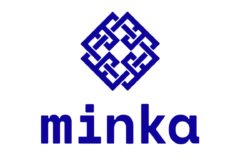When Nkiru Amadi-Emina and Ijeoma Akwiwu met at a birthday party in Abuja, Nigeria, they knew they’d make good friends; what they didn’t know was, they would make good co-founders as well. But 8 years into their friendship, they have built and run a couple of projects and businesses together and, now, they are focused on building Pivo, a startup they envision will be the neobank for trade in Africa. Like AfreximBank but faster and digitally operated.
The big picture is to be the go-to neobank for trade in Africa by the end of this year, or next.
Pivo entered the market with Pivo Capital, a credit-focused financial services platform for supply chain small and medium businesses (SMEs), because of the co-founders’ track record in the supply chain industry, especially the logistics aspect.
Long before Pivo, Amadi-Emina, a software engineer, worked as a tech consultant for Nigeria’s electoral body, the Independent National Electoral Commission (INEC), for over 2 years. She left INEC in 2017 to found her first startup Jalo, a venture-backed on-demand delivery company that focused on Nigeria’s North-Central market and served e-commerce platforms like Jumia and Konga in that region.
In August 2018, Amadi-Emina joined Kobo360 after the logistic startup acquired Jalo in an acquihire deal. She remained at Kobo360 for a little over 3 years before leaving last year to focus on Pivo.
For Akwiwu, a trained lawyer who claimed to have stumbled on tech by chance and the influence of friends like Amadi-Emina, her law career, which started officially in 2013, spanned across law firms and companies like Gilmor Engineering, one of the biggest engineering firms in Nigeria, where she worked for over 6 years.
But, along the line, she started playing with project and product management and operations, monitoring projects, and product development lifecycles on the side. Last year, she decided to transition fully into tech. She left law to focus on building Pivo and getting a master’s degree in software development while at it.
With Amadi-Emina’s experience in the logistics side of the supply chain, having worked and led the port operation effort at Kobo360, Akwiwu’s experience in law, and their collective knowledge of running an exportation business, building a business that serves the logistics arm of the supply chain was a no-brainer.
Logistics supply chain is Pivo’s first stop
In Africa, access to credit is still one of the biggest challenges small businesses deal with, especially small supply chain businesses. Supply chain businesses usually have a short time to execute a contract, and due to the excessive bureaucracy and numerous requirements, acquiring credit from traditional financial institutions takes a long time, therefore these businesses are automatically at a disadvantage.
This is where Pivo comes in.

Launched in September last year, Pivo provides flexible and quick financing options for supply chain businesses like logistics service providers, clearing and forwarding businesses, and FMCG distributors. Pivo is like a third-party partner in a transaction between a buyer and a seller. But to understand what Pivo does, one must first understand how supply chain financing works.
Supply chain finance is a type of cash advance suppliers receive from lenders to fulfill a transaction or contract before the buyer pays them.
Here’s how it works: a merchant wants to supply a buyer with goods but needs some working capital to see the transaction through before the buyer pays them. So the merchant approaches the lender (that would be Pivo, in this case) for a credit. The lender then collects all required information to check for the legitimacy of their transaction or contract claim with the buyer, then disburses the credit once the buyer confirms the contract.
The above illustration explains Pivo at its core. Once a business finishes their KYC and asks for credit, Pivo prompts them to supply all the information about the transaction they need financing for. After that, Pivo profiles the business seeking credit for worthiness, runs a risk assessment on the transaction, and then profiles the businesses they are doing the transaction with, to ascertain whether they are credible and good for the money.
Once everything checks out and the buyer agrees to pay into the supplier’s Pivo account, Pivo then disburses the loan. In partnership with Providus Bank, Pivo provides its customers with a business account that facilitates remittance. So, after the money lands in the supplier’s Pivo account, the startup takes its dues.
All these checks and assessments help Pivo to finance only creditworthy customers and less-risky transactions.
“We’re able to ensure 98% recovery on every single capital we deploy to our customers,” Amadi-Emina told TechCabal.
Amadi-Emina also mentioned that the average capital requests they’ve received per customer is about $10,000. And while they cater for credits within the range of $5,000 from the company’s balance sheet, requests above $5,000 are passed to their credit partners.
Growth and traction
For now, the startup is still building in a stealth mode and according to the CEO Amadi-Emina, Pivo currently has about 250 direct SMEs customers and 5 ecosystem leads, which are the larger corporations that Pivo serve the SMEs within their value chain through embedded finance. Each ecosystem lead is reported to have about 500 to 1,000 SMEs.
The startup lists some of the top logistic companies in Africa as its ecosystem lead customers including Jetstream Africa, SabiRoad, Vee Logistics, and MVx.
On the side of its loan book, the co-founders said they have disbursed $1 million worth of credit out of over $2 million worth of applications that they have received since launch.
The company makes money from the interest charged on the credit disbursed, management fees, and the one-off charges from account creation. Akwiwu believes that as they continue to add more offerings, they will have more sources of revenue.
The startup has also raised a 6-figure preseed from Microtraction, FirstCheck Africa, Ventures Platform, Mercy Corps Venture, Rally Cap Ventures, Metis Capital Partner, Bold Angel Fund, and recently just got into the ODX accelerator programme where it’s entitled to $125,000 for a 7% equity stake.
What does the future hold?
For Akwiwu and Amadi-Emma, the roadmap is clear and they already have new products that will help them become a full-fledged neobank for trade in the works. For example, products like Invoice Factoring and Pivo Plus, which includes insurance and corporate compliance offerings, are already in the testing phase.
The company is currently only operational in Nigeria with the plan to expand into Ghana before the end of the year.
The competition in the credit market in Africa is heating up and it’s good for SMEs. While there are new upstarts springing up to provide credit for businesses, the bigger ones are also making a fray into the scene. For instance, Flutterwave, the unicorn fintech, has joined the credit space with the recent announcement of Flutterwave Capital.
While other startups like Payhippo, Lendigo, Float, and even Brass have successfully built a digital financial institution that provides credit for African SMEs, Pivo is the only one playing strictly in the supply chain sector, at least that we know of at the moment.
Editor’s Note: The total worth of disbursed credit has been changed from $980,000 to $1 million. Between the time we interviewed the founders and the date this article was published, Pivo disbursed another $20,000 in credit.





















